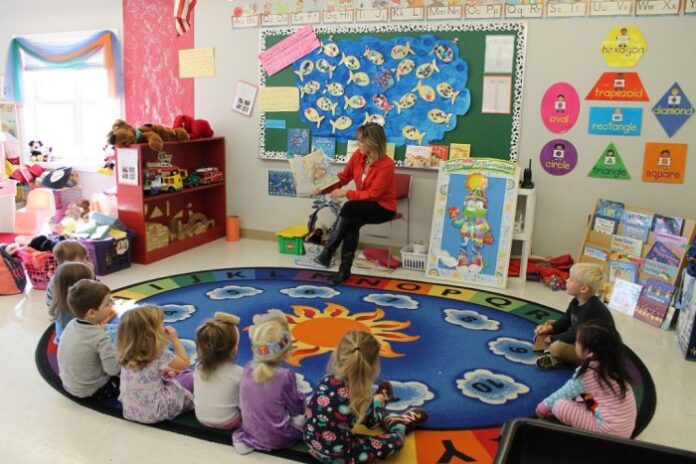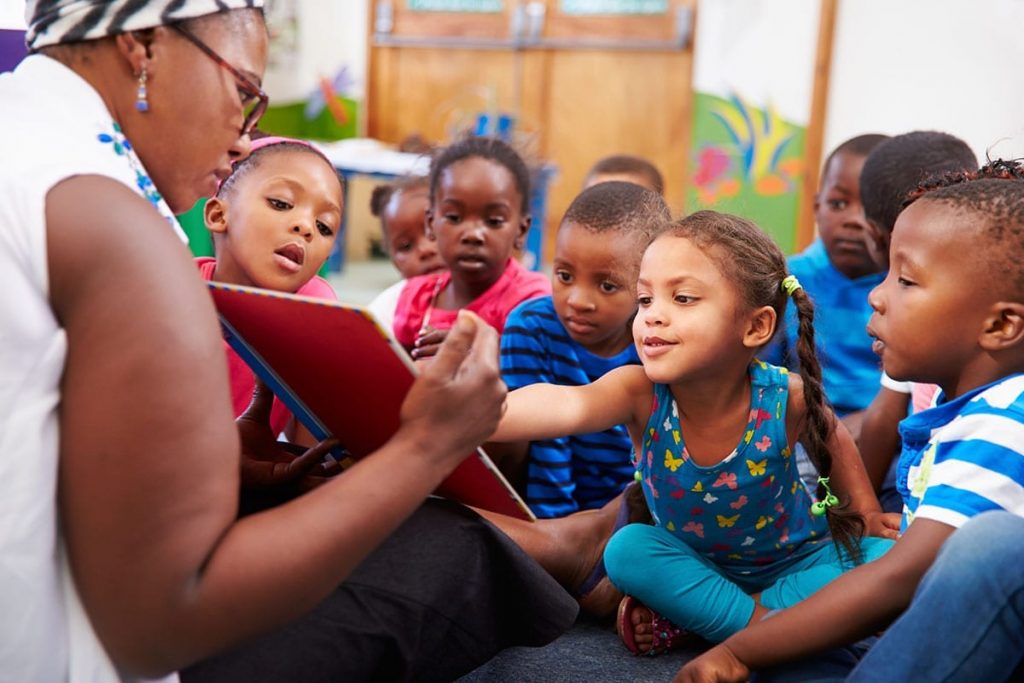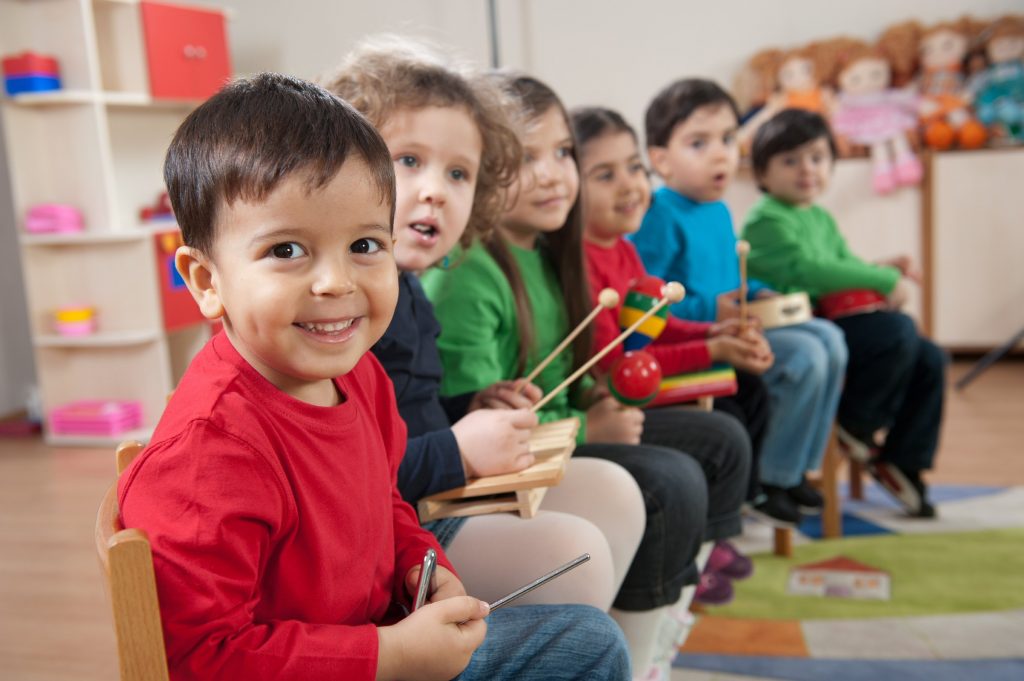Hooray! It’s your child’s first day of preschool!
…Or is it daycare? Is there really a difference?
There are many differences between a daycare program and a preschool program. Both have their benefits, and it’s up to each parent to determine which is best for their family and lifestyle. The first step is understanding the differences.
If you are new to the daycare vs preschool debate, a little bit of research can help make your decision easier. Read on to learn what differentiates these two early childhood education options!
Daycare vs Preschool: What’s the Difference?
The factors that differentiate daycare from preschool are subtle but significant. Different families have different needs, and that’s why a variety of early childhood programs exist! An understanding of the differences begins with an understanding of the services offered at each type of program.

What Is Daycare?
A daycare is sometimes referred to as a childcare center. These nurturing environments often cater to children from infancy through age five. They provide all-day care, ideal for working parents.
There is no set drop-off time at most daycare centers, and pickup is often flexible. At the center, children will enjoy learning, meals, and rest or nap time. The other children will be in their developmental age group.
Daycare centers offer a variety of appropriate toys. An average day includes many projects and activities. Your child will be busy and learning all day long.
Some daycares do offer preschool or other academic programs. Because of the length of the day, these programs may be more relaxed. There is often more downtime for self-directed creative play during the day.

What Is Preschool?
The focus of a preschool is socialization and academic growth. It is a learning program, similar to an elementary school, with set hours. Drop off and pick-up times will be set by the school itself.
Preschool is most appropriate for children between the ages of two and a half and five. Children enjoy a structured day, with a focus on how to behave in a group environment. A preschool program will always include some explicit instruction in academic areas.
Preschool children may or may not eat meals or snacks during the day and may or may not nap. This is usually dictated by the length of the school day.
Many preschool programs are half-day. Children attend for a few hours and enjoy meals and rest time at home.
Most preschools follow a consistent daily schedule with limited downtime. Most quality preschool programs do provide opportunities for freely chosen creative and social play during the day.
Some preschools do offer before or after-school daycare programs for working parents.

What Are the Benefits?
Each type of program has its own particular benefits. The specifics of your child’s program will be individual to the program itself and may vary.
Daycare Benefits
One of the best benefits of daycare is flexibility for the busy or working parent. These programs offer full-day care with no designated drop-off or pick-up time. This makes them ideal for families with a variety of schedules.
According to thelearningexperience.com, many daycares even have an open door policy so that you can visit your child on your lunch break!
Most daycares post a healthy weekly menu, so you will know exactly what and when your child is eating. Infant teachers will keep track of when your bottle-fed baby eats, too! Your child will learn table manners and try many new foods each day.
Daycare providers are caring, observant professionals. Your child’s teacher will keep records and report on specific developmental milestones.
You can expect to receive photos and reports that chronicle your child’s growth and development. While children may age out of one room and into another, their favorite providers will be nearby to provide continuity of care.
Many daycare programs do offer academic programs, similar to preschool. Children may enjoy circle time, storybook read aloud and learning centers. Many daycare children are just as prepared for kindergarten and elementary school as children enrolled in preschool.

Preschool Benefits
Preschool can be a wonderful option for families with more flexibility. They provide the opportunity for young children to socialize with peers. Children can also practice healthy separation.
Preschool programs teach children how to behave in a group environment. This means that they will know what to expect in the school setting in the future.
Many preschool programs put a focus on academics. They will follow a consistent routine that will include direct and indirect instruction.
Direct instruction may involve circle time, short lessons, storybook read aloud, or small group instruction. Indirect instruction may include free play, center time, and outdoor play.
Many programs also offer opportunities to create crafts or projects. These will build fine motor skills and prepare children for writing in Kindergarten.
A preschool teacher is often a certified early childhood professional. Many preschool teachers have a minimum of a Child Development Associates degree. Many have bachelor’s or even master’s degrees!
Teachers understand how children learn, and deliver developmentally appropriate instruction, often through play.
Preschool costs will vary based on the length of the school day and whether or not your child eats meals at school. Often, you are paying for the expertise of the educator.
If you are searching for “good preschools near me,” you will find various pedagogical philosophies. Whether you are seeking nature or workbooks, there is a program that is ideal for your family.

The Best Childcare Is High-Quality Childcare
When considering daycare vs. preschool, the right decision for your family will depend on the amount and kind of care that your family needs. Both are excellent options that provide opportunities for growth and development. Your child will be cared for by a loving professional who is dedicated to their safety and wellbeing!









